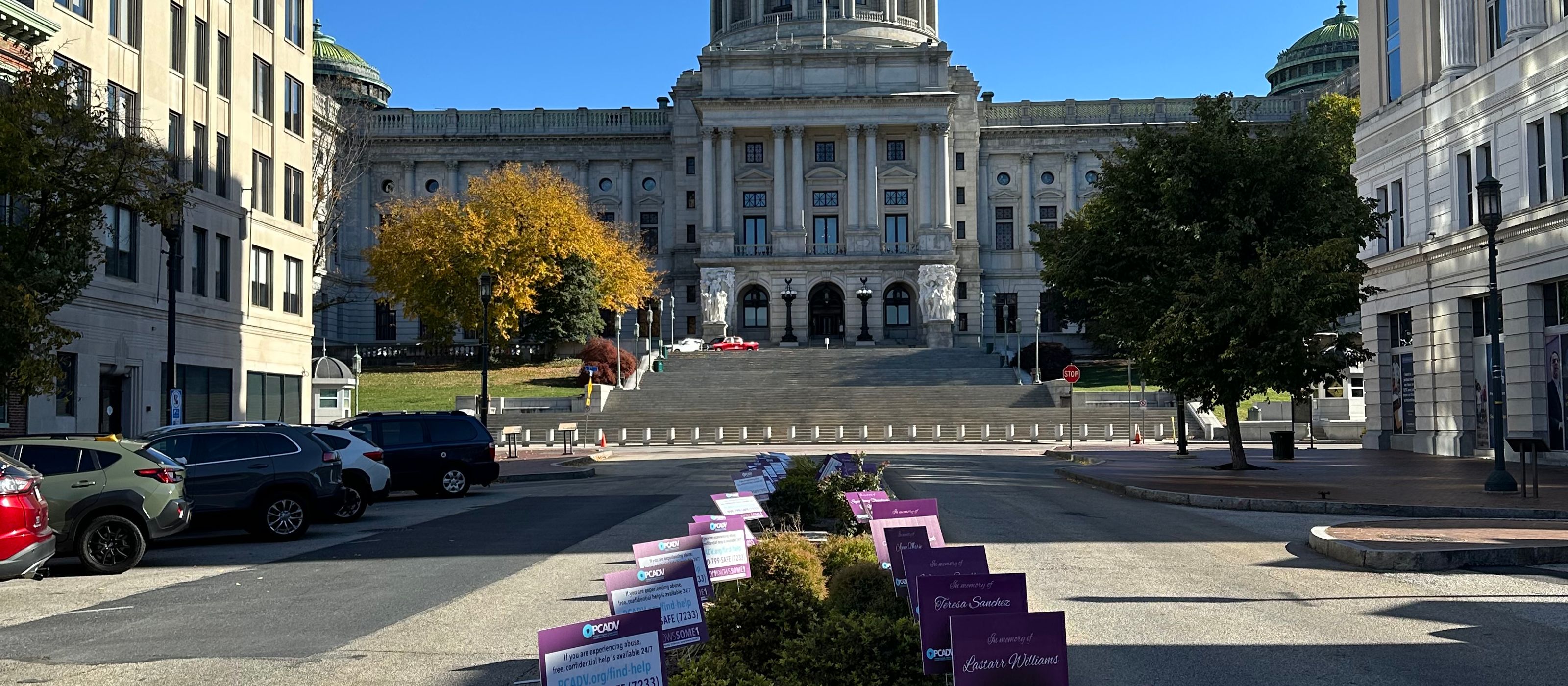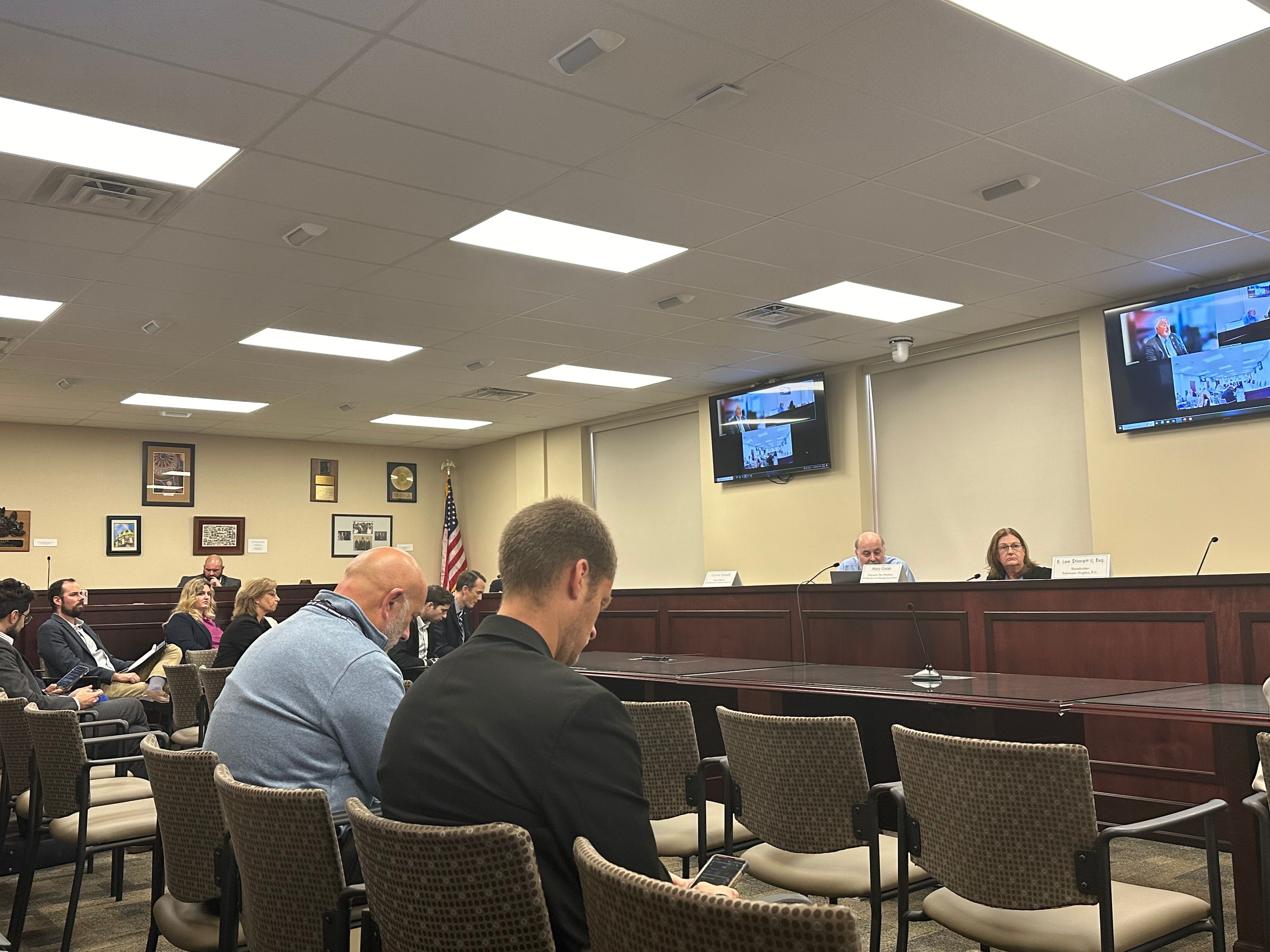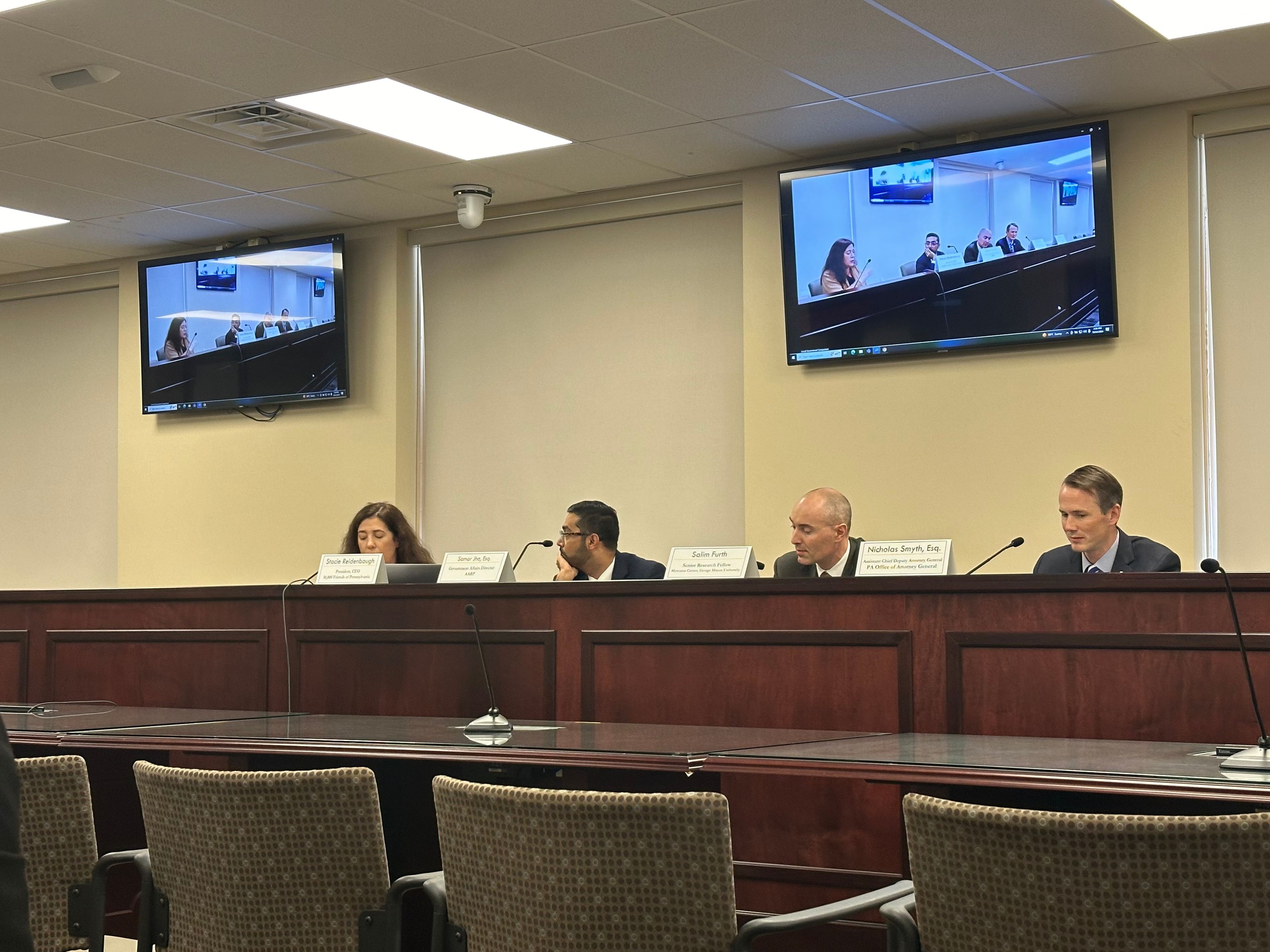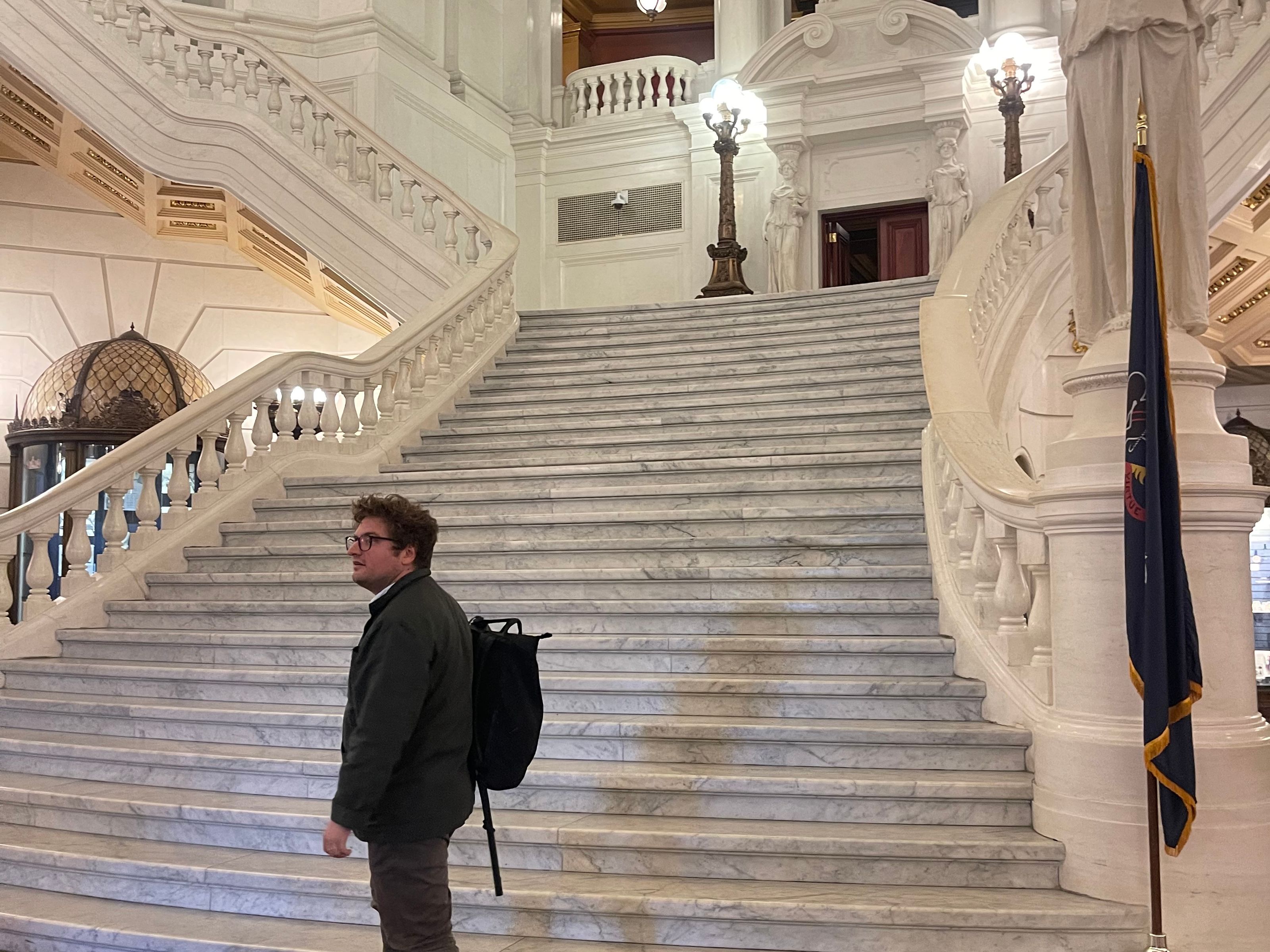
Oct 30, 2024
Isabelle O'Toole
The Local Government Symposium
The Small Cities Lab team presented the Alley House Program at the Pennsylvania Local Government Symposium, hosted annually by the Local Government Commission in Harrisburg, PA.
On October 24th, government officials and stakeholders came together to discuss solutions to critical issues affecting cities and towns across Pennsylvania. The Small Cities Lab team traveled from Bethlehem to Harrisburg to listen to panelists and present the Alley House Program as the final panel of the event. The event featured five panels, addressing infrastructure financing and management, housing supply, and community resilience.
The morning session highlighted two panels on infrastructure. Representatives from PENNVEST and the Department of Community and Economic Development (DCED) presented insights into financing mechanisms for water infrastructure projects. The Wyoming Valley Sanitary Authority, alongside Salzmann Hughes, P.C., discussed stormwater management and highlighted the necessity of proactive measures to mitigate flooding risks in vulnerable areas.
The Small Cities Lab team arrived at the Irvis Office Building after the morning session. The team enjoyed a complimentary lunch and listened to the afternoon session panelists, regarding housing supply and affordability that complemented well with the work of the Alley House Program.
The third panel of the day was a presentation on manufactured housing solutions, featuring the Pennsylvania Manufactured Housing Association. Their team emphasized the potential of manufactured housing to alleviate housing shortages. Manufactured homes are constructed off-site and are built to meet HUD code standards. They represent the largest source of unsubsidized affordable housing, accommodating 22 million residents across the U.S. There are various forms of manufactured housing, including multi-unit manufactured homes such as duplexes, CrossMod homes, which require placement on private properties, and industrial / modular housing that is regulated by the Industrialized Housing Act. Both CrossMod and Modular homes are built off-site, but require features and characteristics similar to on-site construction. The estimated costs for manufactured homes stand at approximately $85 per square foot and $165 per square foot for modular homes. Despite their affordability and efficiency, manufactured homes constitute only 4.3% of Pennsylvania’s housing stock due to zoning regulations.

The fourth panel of the day discussed solutions to housing affordability and availability in the commonwealth, featuring representatives from 10,000 Friends of Pennsylvania, AARP, GMU Mercator Center, and the Pennsylvania Attorney General's office. They began by discussing how zoning and permitting were identified as significant obstacles, and the PA Choice Housing Coalition is collaborating to address these barriers and find potential solutions. These include accessory dwelling units, advocating for “gentle” density increases and relaxed zoning to allow these units in single-family zones and commercial districts. The group also discussed the potential of horizontally integrating residential and commercial districts. In certain cities, residential units are permitted within commercial areas when commercial spaces occupy the ground level beneath residential apartments—this approach is known as vertical integration. To achieve a broader impact, municipalities should consider horizontal integration, which will decrease the barriers to housing creation. Additional recommendations included utilizing church grounds and other religious sites for housing, as well as developing workforce housing, engaging employers in these initiatives. These solutions can create pathways to increase housing availability and are a part of the larger puzzle.

The final panel was our Alley House Program. We ran through a presentation that discussed each stage of the Program’s work, from policy research to public history and design and construction efforts. Following the Presentation, we received a range of questions:
Q: Is the alley central to the design and construction of ADUs in the Lehigh Valley?
A: The Small Cities Lab is also thinking about how ADUs can be incorporated in places in the Lehigh Valley that do not have alleyways, including parts of Bethlehem. These ADUs would have a different relationship to space and have different design features.
Q: Are there privacy issues with such close proximity?
A: This can be easily mitigated with design questions and visioning.
Q: Can people subdivide the lot in the future so there are two homeowners?
A: Subdividing lots can be thought about in the future but we are thinking of how these homes can act as second units for renters
Q: How can we transfer ADUs to cities that do not have an ADU as a native or historic housing typology?
A: Public history efforts can effectively engage residents, providing project leads with opportunities to learn and interact with the community and build a coalition around ideas. Public history work also allows us to integrate new ideas with existing histories in a way that is transferable to any place.
Q: Is parking going to be an issue?
A: The Alley House Program is not minimizing the issue but believes that parking should be the homeowners choice (especially since residents will have different levels of mobility)
The Local Government Symposium created a dialogue to think about how municipalities, non-profits, residents, and various stakeholders can collaborate to address complex issues. Participants and attendees engaged in fruitful discussion to pave the way for more sustainable and inclusive housing and infrastructure solutions in Pennsylvania. The insights gained from this event will contribute to ongoing efforts to enhance local governance and improve the quality of life for residents across the state.
